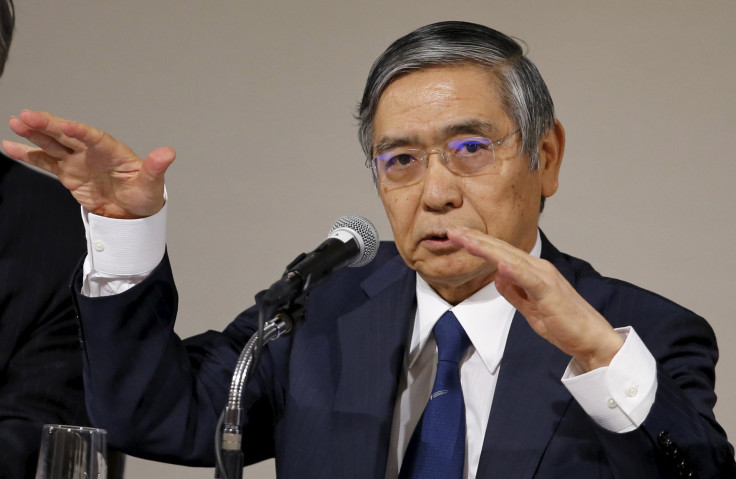Most Asian Stocks Fall As Investors Shift Focus From Fed To Oil, Global Growth

Asian shares fell early Friday, following the U.S., as investors shifted their focused back on falling oil prices and slowing global growth after cheering the Federal Reserve's historic move on Wednesday. Taiwan unexpectedly cut interest rates citing the weakening world economy.
Japan's Nikkei 225 fell 0.1 percent, with the Bank of Japan expected to maintain its economic stimulus program at its Thursday meeting. South Korea's KOSPI fell 1 percent and Australia's ASX 200 0.7 percent. Singapore's STI was up 0.7.
In the U.S. on Thursday, the Dow Jones Industrial Average, Standard & Poor's 500 and Nasdaq composite all fell from 1.4 to 1.5 percent.
"Global economic performance has been worse than expected recently," Reuters reported Taiwan's central bank as saying Thursday, explaining why it cut rates by 12.5 basis points -- an eighth of a percent -- to 1.625 percent.
While the Federal Reserve's decision to raise interest rates from near zero for the first time since the 2007-09 global financial crisis reflected the bank's confidence that the U.S. economy is recovering sustainably, growth is weaker or slowing in Europe, China and other parts of the globe. Some of them are loosening monetary policy even as the U.S. tightens, making "divergence" a buzzword among financial market players.
A slowdown in China, the world's biggest commodities consumer, is helping drag oil and commodity prices, hurting the companies and countries such as resource-rich Australia that supply those industries. Saudi Arabia's refusal to cut oil production to boost prices hasn't helped, keeping oil under $40 a barrel for two weeks now. And higher U.S. rates are expected to prod investors to shift more funds from commodities ranging from oil to gold and from riskier emerging markets.
“After yesterday’s initial bout of buoyancy in equity markets, Asia looks to be about to spit the dummy today,” said Angus Nicholson, a market analyst in Melbourne at IG Ltd., as reported by Bloomberg. “Equity markets are beginning to know their enemy -- the continued sell-off in energy prices.”
© Copyright IBTimes 2024. All rights reserved.





















